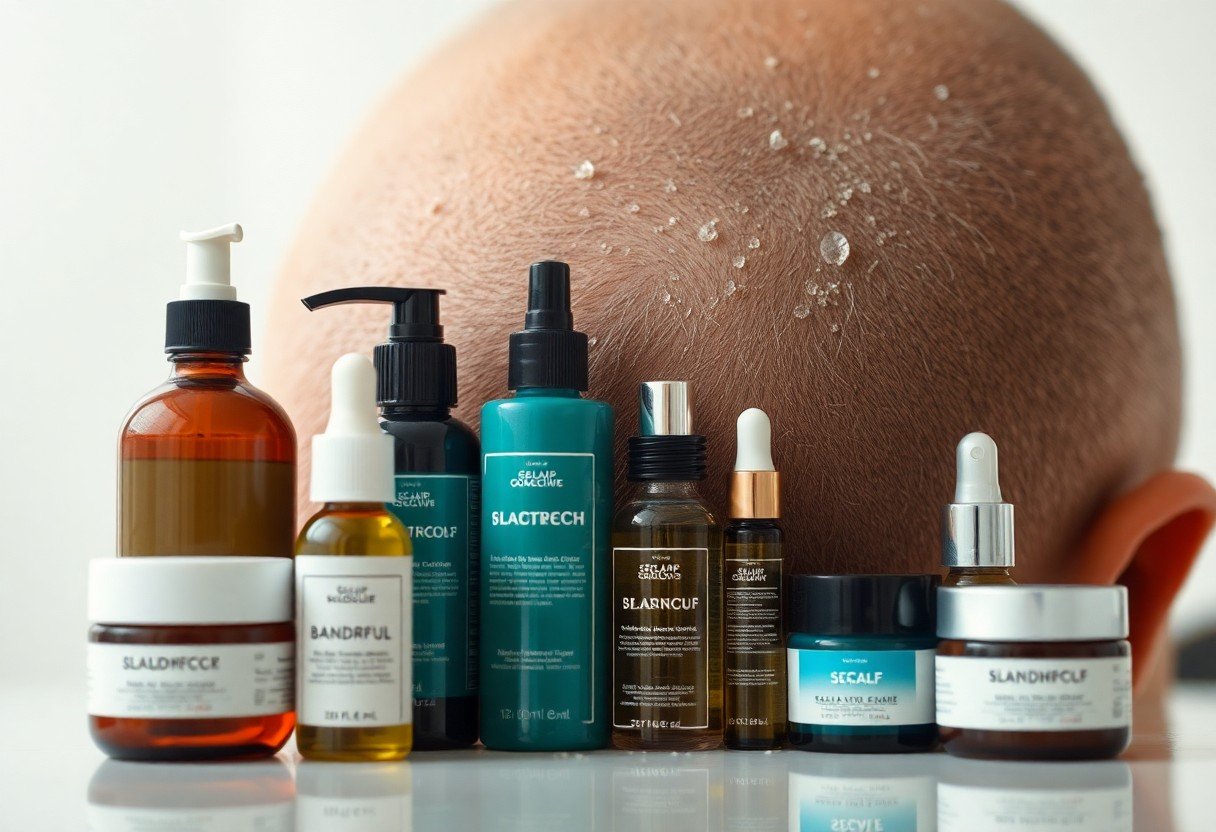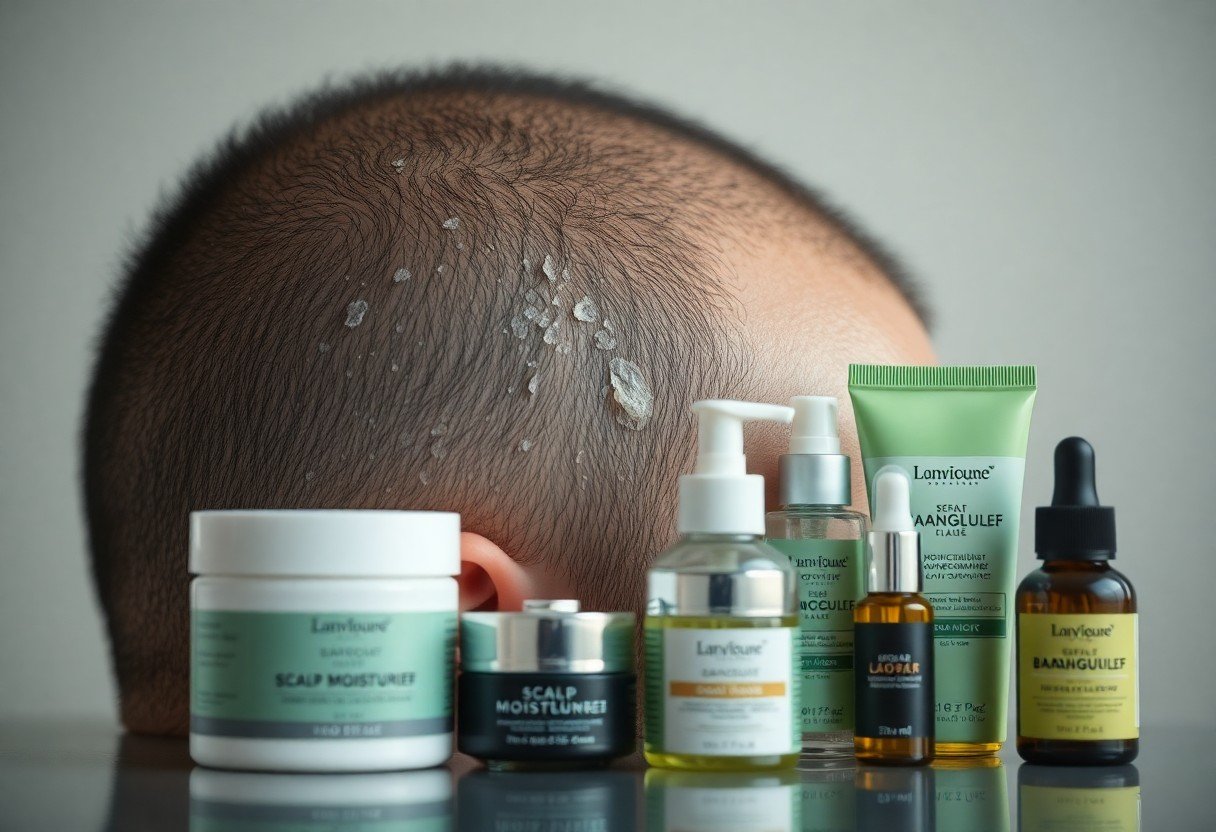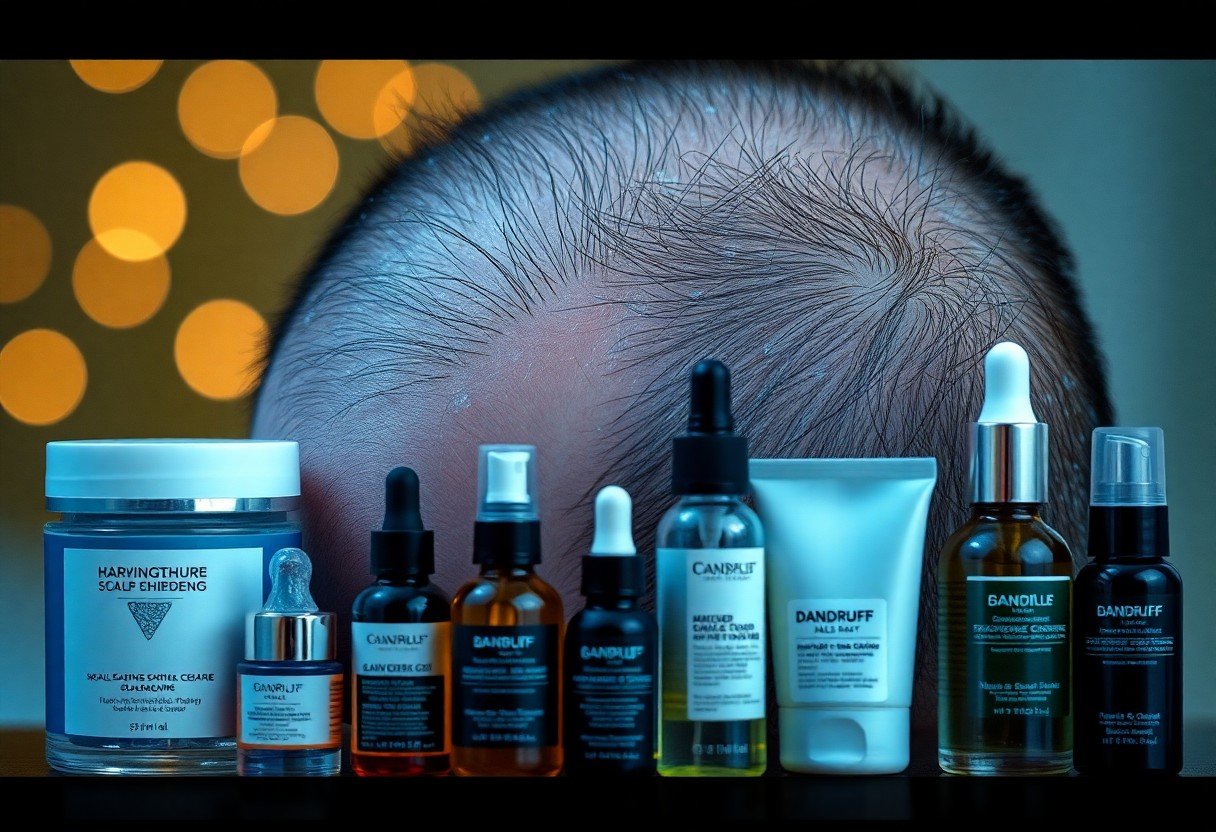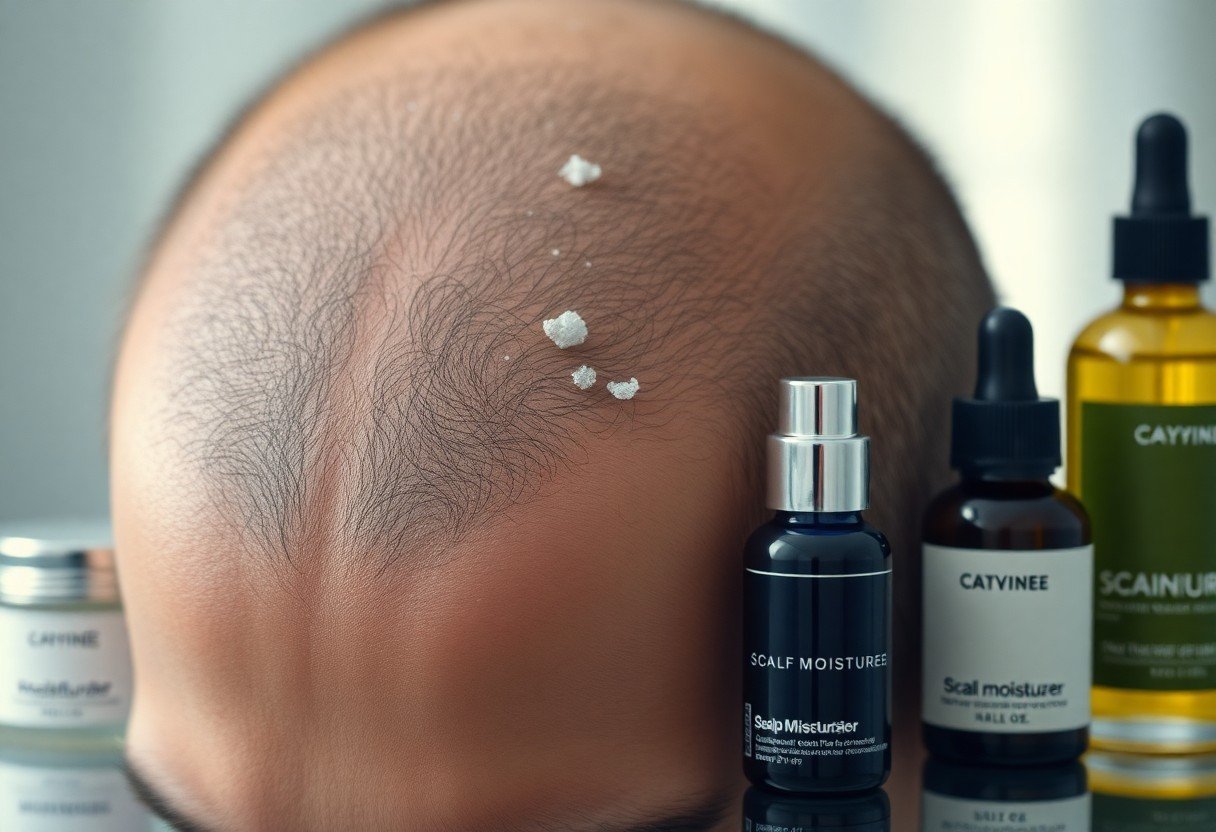Many of you struggle with the persistent issue of dandruff, searching for effective solutions in scalp moisturizers. While these products promise to be your salvation from those embarrassing white flakes, understanding their true effectiveness requires diving deeper into the science behind them. Your scalp’s natural balance plays a vital role in dandruff control, and moisturizers work by restoring imperative hydration and creating an environment where harmful fungi can’t thrive. As you explore various treatment options, knowing how these products interact with your scalp’s ecosystem can help you make more informed choices for lasting relief.

Understanding Dandruff
Your scalp’s health directly impacts your overall hair wellness. Dandruff, characterized by white or grayish flakes on your scalp and shoulders, affects nearly 50% of the global population. This common condition occurs when your scalp’s natural cell renewal process becomes irregular, leading to visible flaking and potential discomfort.
Types of Dandruff
Dandruff manifests in various forms, each requiring specific treatment approaches. The condition ranges from mild to severe cases, affecting people differently based on their scalp condition and environmental factors.
- Dry scalp dandruff
- Oily scalp dandruff
- Fungal dandruff
- Seborrheic dermatitis
| Type | Characteristics |
|---|---|
| Dry Scalp | Small white flakes, itchy sensation |
| Oily Scalp | Large, yellowish, greasy flakes |
| Fungal | Red patches, severe itching |
| Seborrheic | Yellow-red patches, inflammation |
| Weather-induced | Seasonal flaking, temporary |
Factors Contributing to Dandruff
Assuming you’re dealing with dandruff, understanding its root causes is important for effective treatment.
- Malassezia fungus growth
- Hormonal changes
- Poor hygiene habits
- Stress levels
- Diet deficiencies
With various factors influencing dandruff development, it’s important to note that genetics and environmental conditions play significant roles. Your scalp’s response to these elements can vary seasonally, with some experiencing heightened symptoms during winter. After identifying your specific triggers, you can develop a targeted treatment approach for better scalp health.
Scalp Moisturizers Explained
Clearly, scalp moisturizers serve as vital products in maintaining your scalp’s health and preventing dryness-related issues. These specialized formulations work by creating a protective barrier that locks in moisture while allowing your scalp to breathe. Your scalp’s natural balance depends on proper hydration, and moisturizers help maintain this delicate equilibrium.
Types of Scalp Moisturizers
- Oil-based moisturizers (jojoba, argan, coconut)
- Water-based moisturizers with humectants
- Cream-based moisturizers with emollients
- Gel-based moisturizers for light hydration
Recognizing the right type for your scalp condition ensures optimal results.
| Moisturizer Type | Best For |
| Oil-based | Extremely dry scalp |
| Water-based | Sensitive scalp |
| Cream-based | Normal to dry scalp |
| Gel-based | Oily scalp |
| Hybrid formulas | Combination scalp |
How Scalp Moisturizers Work
On a microscopic level, scalp moisturizers function by penetrating the outer layer of your skin, delivering vital nutrients and hydrating compounds. These products help maintain your scalp’s natural moisture barrier while promoting healthy cell turnover.
Moisturizers utilize a combination of occlusive agents to lock in hydration, humectants to attract moisture, and emollients to soften your skin. Your scalp benefits from this three-pronged approach, which helps prevent dryness, flaking, and irritation while maintaining optimal scalp health.
Tips for Selecting Scalp Moisturizers
It’s necessary to choose the right scalp moisturizer that addresses both hydration and dandruff control. When shopping for a product, consider your specific scalp condition, hair type, and severity of dandruff. Look for products with balanced pH levels and avoid those containing harsh chemicals or artificial fragrances. This comprehensive approach will help you achieve optimal results in managing your scalp health.
Ingredients to Look For
Selecting the right ingredients makes all the difference in your scalp treatment. Focus on products containing:
- Tea tree oil for its antimicrobial properties
- Aloe vera for soothing inflammation
- Hyaluronic acid for deep hydration
- Salicylic acid for gentle exfoliation
- Natural oils like jojoba or argan for moisture balance
Common Mistakes to Avoid
One of the biggest errors in scalp care is over-moisturizing your scalp, which can lead to product buildup and worsen dandruff conditions. You should also avoid applying moisturizers directly on dirty scalp, using extremely hot water during hair washing, and mixing too many different products simultaneously.
Scalp care requires a balanced approach, and improper application techniques can diminish the effectiveness of your moisturizer. Using products inconsistently or applying them incorrectly can lead to adverse reactions. Your scalp needs time to adjust to new treatments, so maintain a consistent routine and monitor how your scalp responds to different products.

Step-by-Step Application Guide
To achieve optimal results with scalp moisturizers, following a systematic approach is imperative. This structured method ensures maximum absorption and even distribution of the product throughout your scalp, leading to better management of dandruff symptoms.
Pre-Application Preparation
Now you’ll need to prepare your scalp for treatment. Start with clean, slightly damp hair. Remove any tangles and divide your hair into manageable sections. This preparation ensures the moisturizer reaches every area of your scalp effectively.
Application Techniques
You should apply the moisturizer using your fingertips in a gentle, circular motion. Work through each section methodically, ensuring even coverage. Pay special attention to areas where dandruff is most prevalent.
A proper technique involves working from the front to the back of your scalp, using upward movements. This approach helps stimulate blood flow while ensuring the product penetrates effectively. Avoid using nails as they can cause irritation and potentially worsen your condition.

Pros and Cons of Scalp Moisturizers
After evaluating various scalp moisturizers, you’ll find they offer a balanced approach to managing dandruff. Your choice of product can significantly impact the effectiveness of your dandruff treatment regimen.
| Pros | Cons |
|---|---|
| Immediate relief from itching | Potential product buildup |
| Reduces visible flakes | May cause greasiness |
| Improves scalp health | Some products are costly |
| Prevents dry scalp | Can be time-consuming to apply |
| Promotes healthy hair growth | Possible allergic reactions |
Benefits
Clearly, scalp moisturizers provide immediate relief and long-term protection for your scalp. You’ll notice reduced itching, decreased flaking, and improved overall scalp health when using these products consistently. Your hair will also benefit from the nourishing ingredients, becoming more manageable and healthier.
Potential Drawbacks
The main concerns with scalp moisturizers include the risk of adverse reactions and product dependency. Your scalp might become reliant on external moisturization, potentially affecting its natural oil production balance.
For instance, if you use products containing harsh chemicals or artificial fragrances, you might experience scalp sensitivity or allergic reactions. Your hair may become weighed down if you apply too much product, and some moisturizers can trap bacteria against your scalp, potentially worsening existing conditions.
Final Words
Considering all points, your understanding of scalp moisturizers’ effectiveness against dandruff now extends beyond surface-level knowledge. You can see how these products work through multiple mechanisms – balancing your scalp’s microbiome, regulating oil production, and maintaining proper hydration levels. While science continues to explore the complete picture, you’ll find that selecting the right moisturizer depends on your specific scalp condition and needs. By paying attention to your scalp’s response and choosing products with proven active ingredients, you can effectively manage dandruff while maintaining a healthy moisture balance.
FAQ
Q: How do scalp moisturizers actually combat dandruff?
A: Scalp moisturizers work by restoring the skin barrier function and balancing the scalp’s natural oil production. They contain ingredients like hyaluronic acid, glycerin, and natural oils that help maintain optimal hydration levels. This creates an environment that’s less favorable for Malassezia, the fungus responsible for dandruff, while simultaneously reducing inflammation and flaking.
Q: What specific ingredients in scalp moisturizers are most effective against dandruff?
A: The most powerful anti-dandruff ingredients include zinc pyrithione, which has antifungal properties; salicylic acid, which helps remove dead skin cells; tea tree oil, which provides natural antimicrobial benefits; and ketoconazole, which fights fungal growth. These components work together with moisturizing agents to provide both immediate and long-term relief from dandruff symptoms.
Q: How often should scalp moisturizers be applied for optimal results?
A: For best results, apply scalp moisturizers 2-3 times per week initially, then adjust based on your scalp’s response. Severe cases might require daily application at first, gradually reducing frequency as symptoms improve. It’s crucial to maintain consistency in application to prevent dandruff recurrence and maintain scalp health.
Q: Can scalp moisturizers prevent dandruff from returning?
A: Regular use of scalp moisturizers can significantly reduce dandruff recurrence by maintaining proper scalp hydration and barrier function. However, complete prevention requires a comprehensive approach including proper hair care routine, stress management, and dietary considerations. The moisturizer serves as a protective measure but works best as part of an overall scalp care strategy.
Q: Why do some scalp moisturizers work better than others for dandruff control?
A: The effectiveness varies due to different formulation qualities and ingredient concentrations. Products with balanced combinations of active antifungal agents and moisturizing compounds typically show better results. Additionally, individual scalp chemistry and sensitivity play major roles in how well a particular moisturizer works. Some formulas might be more suitable for oily scalps, while others work better for dry, sensitive skin.

